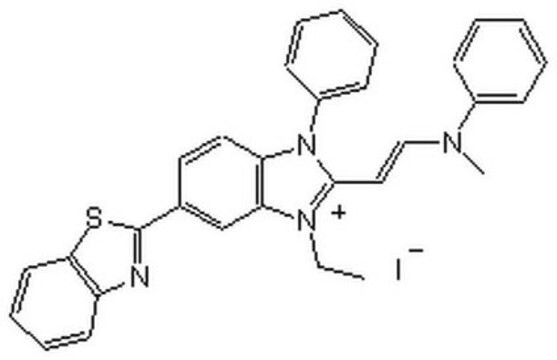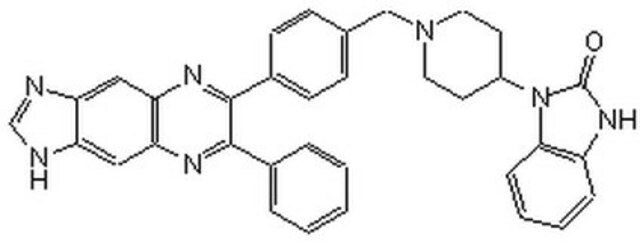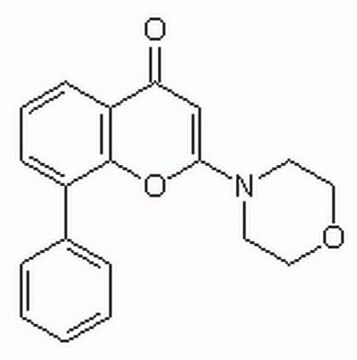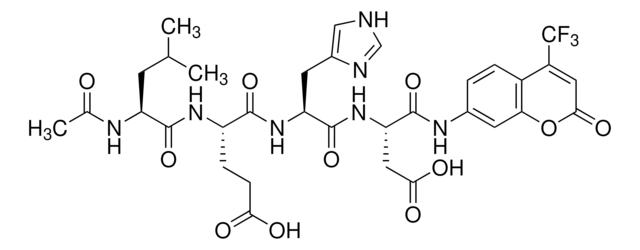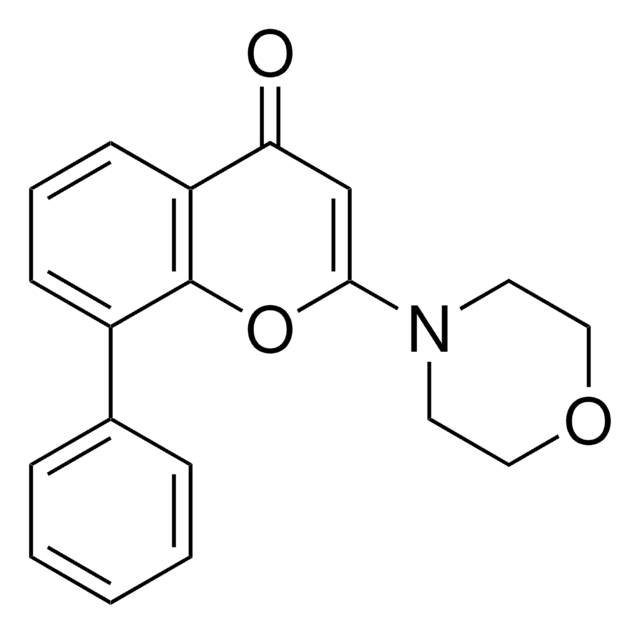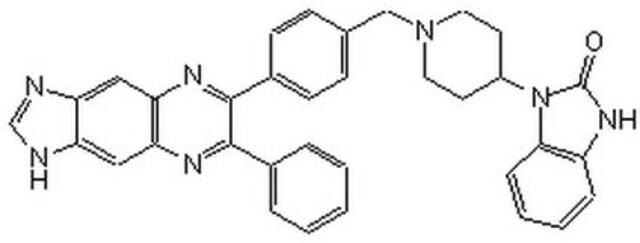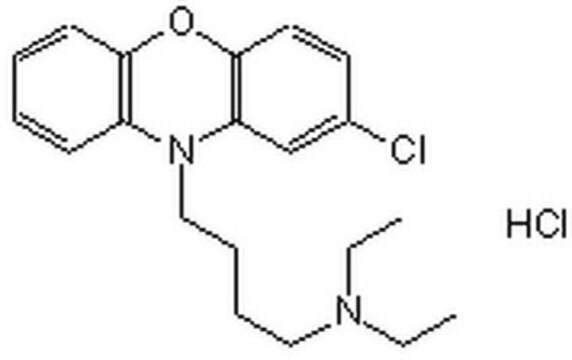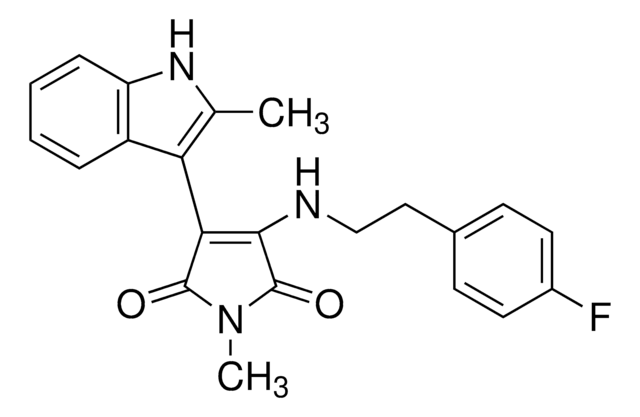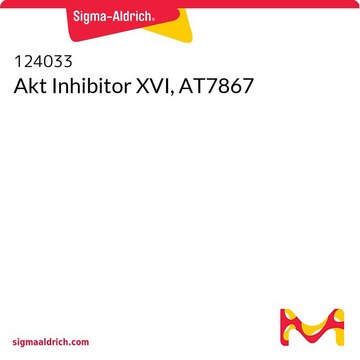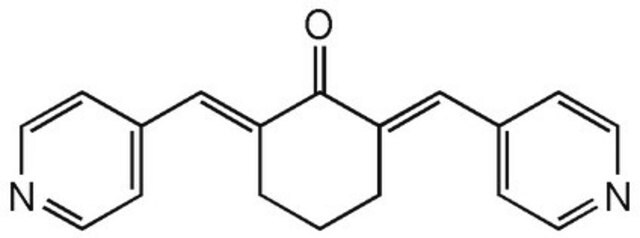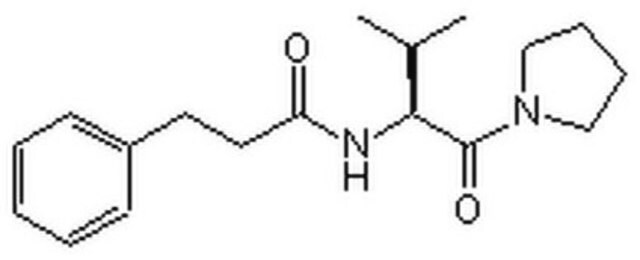A6730
Akt1/2 kinase inhibitor
≥98% (HPLC)
Synonyme(s) :
1,3-Dihydro-1-(1-((4-(6-phenyl-1H-imidazo[4,5-g]quinoxalin-7-yl)phenyl)methyl)-4-piperidinyl)-2H-benzimidazol-2-one trifluoroacetate salt hydrate, Akt Inhibitor VIII trifluoroacetate salt hydrate, Akti-1/2 trifluoroacetate salt hydrate
About This Item
Produits recommandés
Niveau de qualité
Pureté
≥98% (HPLC)
Forme
powder
Couleur
yellow
Solubilité
DMSO: ≥10 mg/mL
Auteur
Merck & Co., Inc., Kenilworth, NJ, U.S.
Température de stockage
2-8°C
Chaîne SMILES
[H]O[H].OC(=O)C(F)(F)F.O=C1Nc2ccccc2N1C3CCN(CC3)Cc4ccc(cc4)-c5nc6cc7nc[nH]c7cc6nc5-c8ccccc8
InChI
1S/C34H29N7O.C2HF3O2.H2O/c42-34-39-26-8-4-5-9-31(26)41(34)25-14-16-40(17-15-25)20-22-10-12-24(13-11-22)33-32(23-6-2-1-3-7-23)37-29-18-27-28(36-21-35-27)19-30(29)38-33;3-2(4,5)1(6)7;/h1-13,18-19,21,25H,14-17,20H2,(H,35,36)(H,39,42);(H,6,7);1H2
Clé InChI
CRRPFKCJZALCLQ-UHFFFAOYSA-N
Application
Actions biochimiques/physiologiques
Caractéristiques et avantages
Code de la classe de stockage
11 - Combustible Solids
Classe de danger pour l'eau (WGK)
WGK 3
Point d'éclair (°F)
Not applicable
Point d'éclair (°C)
Not applicable
Certificats d'analyse (COA)
Recherchez un Certificats d'analyse (COA) en saisissant le numéro de lot du produit. Les numéros de lot figurent sur l'étiquette du produit après les mots "Lot" ou "Batch".
Déjà en possession de ce produit ?
Retrouvez la documentation relative aux produits que vous avez récemment achetés dans la Bibliothèque de documents.
Les clients ont également consulté
Articles
We present an article about how proliferating cells require the biosynthesis of structural components for biomass production and for genomic replication.
Protocoles
Sigma-Aldrich offers many products related to PKB/Akt for your research needs.
Notre équipe de scientifiques dispose d'une expérience dans tous les secteurs de la recherche, notamment en sciences de la vie, science des matériaux, synthèse chimique, chromatographie, analyse et dans de nombreux autres domaines..
Contacter notre Service technique